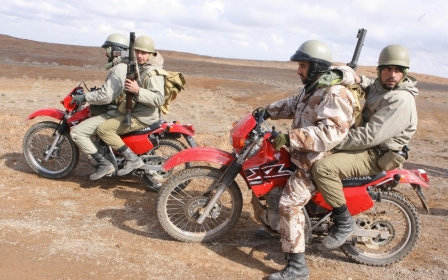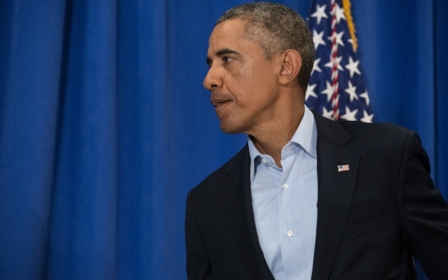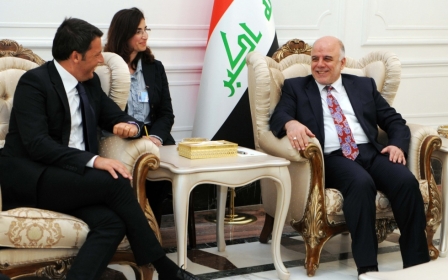Iran links Iraq role to lifting of Western sanctions

Iran is ready to join international action against militants in Iraq provided the West lifts crippling sanctions, Foreign Minister Mohammad Javad Zarif said on Thursday.
His comments followed a call by French Foreign Minister Laurent Fabius on Wednesday for all countries in the region, including Iran, to join the fight against Islamic State (IS) fighters who have seized swathes of Iraq as well as neighbouring Syria.
"If we agree to do something in Iraq, the other side of the negotiations should do something in return," the official IRNA news agency quoted Zarif as saying.
"All the sanctions that are related to Iran's nuclear programme should be lifted," he said.
It is the first time that Iran has explicitly linked its readiness to work with the West in Iraq with a lifting of the crippling EU and US sanctions imposed over its nuclear programme.
Those sanctions are the subject of ongoing talks between Tehran and the major powers that are due to resume before the opening of the UN General Assembly next month.
In return for lifting the sanctions, the Western powers are demanding that Iran sharply rein in its nuclear programme to ally international concerns about its ambitions as part of a comprehensive deal they are seeking to strike by November.
The Iranian foreign ministry confirmed on Wednesday that discussions were under way with several European governments about the possibility of joint action against IS in Iraq.
Zarif said tough negotiations were still under way over what role Iran might play in Iraq and what the reward might be for its cooperation.
"It is still not clear what we have to do in Iraq and what they have to do in return," the Mehr news agency quoted the Iranian foreign minister as saying. "And that's exactly the difficult part."
Zarif was among Iranian officials who were involved in negotiations with US diplomats after 9/11 and until 2003 as the US attempted to route al-Qaeda and the Taliban from Afghanistan, according to those familiar with the talks.
During the conversations, Iranians had the impression that US policy in the Middle East might change in the wake of the 9/11 crisis and that there might be an easing of relations between the two countries, Hillary Mann Leverett, a senior lecturer at American University and a 25-year diplomat, told MEE in July.
"They were instead met with the Axis of Evil and a period of sanctions and threats to invade," Leverett said in July.
With the turn of events in Iraq, however, Leverett said she believed a rapprochement was possible.
"It's potentially a critical moment if the US can embrace it," she said.
Iranian and US officials discussed the militants' lightning offensive in Iraq in June on the sidelines of nuclear talks with the major powers but both sides ruled out joint military action at the time.
Tehran and Washington have had no diplomatic relations since the aftermath of the Islamic Revolution of 1979, although they have had contacts over Afghanistan as well as Iraq.
Middle East Eye propose une couverture et une analyse indépendantes et incomparables du Moyen-Orient, de l’Afrique du Nord et d’autres régions du monde. Pour en savoir plus sur la reprise de ce contenu et les frais qui s’appliquent, veuillez remplir ce formulaire [en anglais]. Pour en savoir plus sur MEE, cliquez ici [en anglais].




